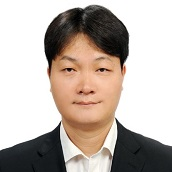New Trends in Sustainable Concrete and Its Structural Applications, 2nd Edition
A special issue of Applied Sciences (ISSN 2076-3417). This special issue belongs to the section "Civil Engineering".
Deadline for manuscript submissions: 20 October 2024 | Viewed by 152
Special Issue Editors
Interests: concrete durability; railway track system; track–bridge interaction
Special Issues, Collections and Topics in MDPI journals
Interests: durability; sustainability; carbonation; chloride attack; crack; corrosion
Special Issues, Collections and Topics in MDPI journals
Special Issue Information
Dear Colleagues,
Sustainability is very important to the continued growth of our society and human civilization, and thus, it is the hottest issue not only in engineering but in all fields. In particular, cement, a main constituent material of concrete, emits a large amount of CO2 and other greenhouse gases, so it constitutes the most important axis of the sustainability issue. In addition, due to restricted natural resources, the constituents of concrete are gradually depleted. For example, the amount of aggregates is rapidly decreasing in most developed countries, so it is no longer possible to obtain high-quality aggregates, which leads to poor-quality concrete construction. To address this sustainability issue in concrete construction, new innovative technologies have been developed in the last decades. For example, various supplementary cementitious materials, such as fly ash, blast furnace slag, silica fume, and rice husk ash, are utilized to reduce cement usage. Recently, limestone calcined clay cement (LC3) is being spotlighted as one of the alternative types of cement with lower CO2 emissions. Alkali-activated concrete is also being actively studied. Furthermore, recycled aggregates collected from waste concrete are a good example of waste recycling in the concrete industry to address the depletion of natural resources. Other examples of waste recycling are being introduced. All concretes that utilize these technologies can be called “sustainable concrete,” but sustainable concrete is not limited to just cement and constituent materials; it can be extended to technologies related to the entire cycle of concrete manufacturing, construction, operation, and disposal. Moreover, to utilize sustainable concrete more actively in the construction industry, it is of utmost importance to verify its compatibility as materials constituting structural members.
From these viewpoints, subjects that will be dealt with in this Special Issue will focus on recent trends in sustainable concrete research, and also case studies that prove the structural performance of sustainable concrete.
Prof. Dr. Seung-Yup Jang
Prof. Dr. Seung-Jun Kwon
Guest Editors
Manuscript Submission Information
Manuscripts should be submitted online at www.mdpi.com by registering and logging in to this website. Once you are registered, click here to go to the submission form. Manuscripts can be submitted until the deadline. All submissions that pass pre-check are peer-reviewed. Accepted papers will be published continuously in the journal (as soon as accepted) and will be listed together on the special issue website. Research articles, review articles as well as short communications are invited. For planned papers, a title and short abstract (about 100 words) can be sent to the Editorial Office for announcement on this website.
Submitted manuscripts should not have been published previously, nor be under consideration for publication elsewhere (except conference proceedings papers). All manuscripts are thoroughly refereed through a single-blind peer-review process. A guide for authors and other relevant information for submission of manuscripts is available on the Instructions for Authors page. Applied Sciences is an international peer-reviewed open access semimonthly journal published by MDPI.
Please visit the Instructions for Authors page before submitting a manuscript. The Article Processing Charge (APC) for publication in this open access journal is 2400 CHF (Swiss Francs). Submitted papers should be well formatted and use good English. Authors may use MDPI's English editing service prior to publication or during author revisions.
Keywords
- sustainability
- concrete
- CO2 (carbon dioxide)
- GHG (greenhouse gas)
- supplementary cementitious materials
- alkali-activated concrete
- cement-free concrete
- recycled aggregates
- waste recycling
- structural performance






